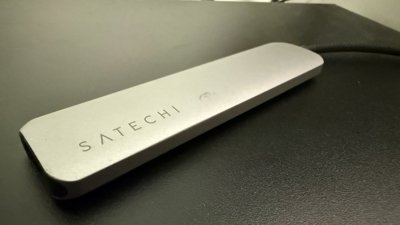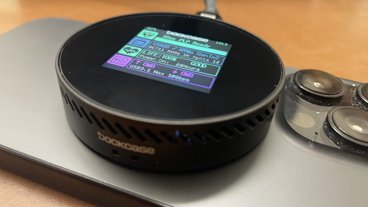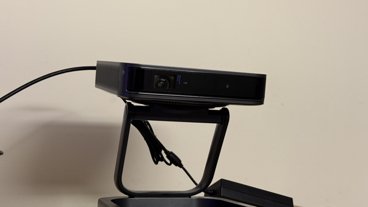A long-discussed manufacturing plant, said to be built by Apple manufacturer Foxconn or its subsidiary Sharp, may break ground as soon as the summer of 2017 with Sharp at the helm, according to a new report
According to a new report by Reuters, Foxconn and Sharp have hashed out who will be the head of a potential U.S. factory, with subsidiary Sharp taking the lead. The announcement may come as soon as Japanese Prime Minister Shinzo Abe makes a state visit to the U.S, bringing with him an investment proposal that could bring up to 700,000 jobs.
Sources familiar with the Prime Minister's visit claim that "the investment will be by a Japanese consortium that will also include manufacturing equipment makers." Both Sharp and Foxconn have refused comment on the matter.
The job package is unlikely to be entirely related to any potential Sharp manufacturing plant, with discussions already underway between the Japan Prime Minister and Toyota on similar matters.
Foxconn and Sharp were considering building an LCD manufacturing plant in the U.S., but which aspect of the same company would lead the effort hasn't been clear. The option for either to be the prime mover was being discussed as recently as January, with an unnamed Foxconn executive said such a decision must be made "carefully."
While rumors are still swirling, the plant still may not be built at all. If it does happen, funding is likely a result of SoftBank's $50 billion investment in the U.S., aimed at creating 50,000 jobs. SoftBank is a partner of Foxconn.
If a U.S. LCD plant from Sharp and Foxconn were to come to fruition, it is reportedly slated to be about the same size as a recently announced display manufacturing plant in Guangzhou, China. That facility, scheduled to open in the fall of 2018, has a price tag of $8.69 billion.
Foxconn officially acquired Sharp for $3.5 billion in March 2016.
Apple chipmaker TSMC also has recently noted that it was examining the possibility of building a chip foundry in the U.S., according to DigiTimes. As with Foxconn and Sharp, import taxes expected to be levied on goods manufactured overseas is leading to the discussions.
 Mike Wuerthele
Mike Wuerthele














 Thomas Sibilly
Thomas Sibilly
 Marko Zivkovic
Marko Zivkovic
 Andrew Orr
Andrew Orr
 Amber Neely
Amber Neely
 Christine McKee
Christine McKee
 Malcolm Owen
Malcolm Owen
 William Gallagher
William Gallagher










6 Comments
700,000 jobs?! That's a BIG factory. Are they sure it's not more like 7,000,000 or 7,000,000,000 jobs?
The US doesn't have 700K people who would be willing (or qualified) to work as
robotsassembly line workers in this facility. We're talking about assembling small electronic items, not cars and trucks. Our colleges are only teaching people how to use a keyboard so they can become desk workers, not teaching them how to build things. Once these facilities have been built, I'm sure real robots will take over the majority of the assembly work, relegating the humans to menial tasks. I doubt there would be anywhere near this amount of people employed although we could recycle the military into these jobs.This Foxconn plan to make (presumably) big displays has been under discussion since 2012, according to this 2014 story in Bloomberg:
https://www.bloomberg.com/news/articles/2014-01-10/whats-new-in-television-more-tv-sets-are-being-made-in-the-u-dot-s
So let's give credit where it's due, to the business and economics case for manufacturing big pieces of glass in the USA rather than shipping them in. The America First Administration can be played for better tax and land deals, but the credit must go to the experts in global electronics strategy, Terry Guo, the Japanese IGZO LCD veterans, and by extention, Tim Cook and Apple.
We may yet see an Apple TV, and a return of the Apple Cinema Display.
The negative is that the production machinery has to be imported, along with the engineering and the expertise, from Asia, since there has been no TV or display manufacturing in the US for 30 years.
Edit: the Bloomberg story is misleading in that it doesn't reveal that Element just adds a few parts to Chinese and Korean-made TVs. So "assembled in USA" is more like it.